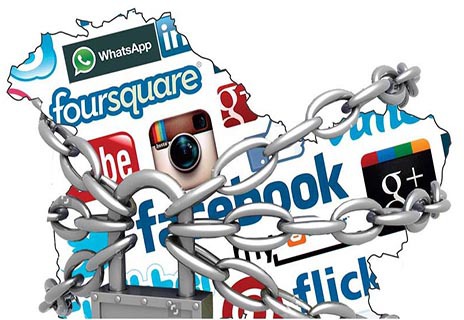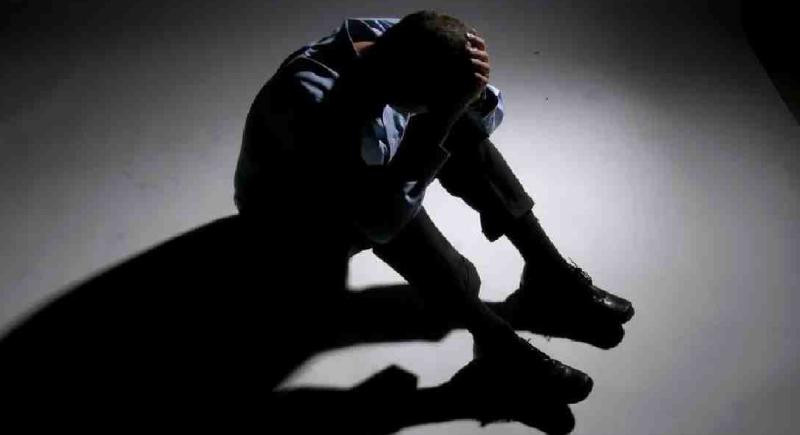The Jammu and Kashmir High Court on Monday asked the state government to respond to pleas seeking scrapping of an order banning 22 social networking sites in Kashmir.
A bench of Justice Ramalingam Sudhakar while hearing two separate petitions by Raja Faisal Malik and Bilal Ahmad Bhat through their counsels Saliah Pirzada and Syed Musaib issued notice to the government for filing objections by May 16. State counsel B A Dar accepted notice on behalf of government.
As soon as the matter came up for consideration, Advocate Saliah drew attention of the court towards Indian Telegraphs Act 1885, in keeping with which, the government has issued an order banning the social networking sites. “Public order cannot be regulated by the provisions of The Indian Telegraphs Act 1885,” he pleaded.
The petition has raised a very important point before the court saying “the object, as provided in the government order for proscribing the selected access to internet, cannot be executed while employing the provisions of the central legislation when public safety falls within the domain of State Legislature.”
The state Home department has invoked a British era law, Indian Telegraph Act 1885, to ban transmission of messages or pictures through Facebook, Twitter, WhatsApp, QQ, WeChat, Qzone, Tumblr, Google+, Baidu, Skype, Viber, Line, Snapchat, Pinterest, Telegram, Reditt, Snapfish, YouTube (Upload), Vine, Xanga, Buzznet and Flickr.
For the ban, the government has assigned the reasons of “misuse of social media, transmission of objectionable content by anti-national and subversive elements for disturbing public order and to spread dissatisfaction among public especially in the Kashmir valley against state administration and security forces.”
Seeking extra jurisdiction of High Court, the petitioner submits that “access to internet is his fundamental right and the order in question imposes unreasonable restrictions based on unjustifiable reasons devoid of any legal sustenance”.
While the petitioner submits that curtailment of access to internet by the state is tantamount to infringement of freedom of speech and expression as well as basic human right, he says mere criticism of the government and its policies cannot form a reasonable ground for the government to proscribe the access to internet.
The petitioner states that the reason as provided in the order under challenge, “being inadequate and vague cannot circumvent the guarantees of the Constitution and cannot qualify the tests of Article 19 (2).”
He submits: “Sub-clause 2 of section 5 of the archaic legislation Indian Telegraphs Act, which was legislated in the aftermath of the mutiny of 1857 cannot be used for the colourable exercise of maintaining the ‘public order”.
The petition underscores that Information Technology Act, 2000 being a special law will hold the field, if at all it is applicable. The Telegraph Act, he says, is neither enshrined with any provision which could govern the subject matter, nor can such a construction be given to the provisions of the Act which would pragmatically render the special law redundant.
“The blocking of access to arbitrarily selected websites that too for a period of one month cannot be a pragmatic approach for maintenance of ‘public order’, as the alleged misuse will not cease to exist after the proscription period of one month”.
Moreover, says the petition, if such power to block access to the social media websites is allowed in absence of procedural safeguards in an unbridled fashion, the same would lead to arbitrariness. “The failure of the government to fix accountability on inimical elements misusing the social networking websites cannot give unrestricted powers to the state condemning the people en masse.”
The petitioner submits that the government action is unreasonable and a retrograde step in this era of civilization revolutionized by the concept of globalization.
“The order under challenge cannot be imposed upon administrative fait when the civil government is functional. Such intrusion on fundamental rights cannot be imposed by an executive order in absence of a state legislation”.
Pleading that the government order being ultra vires to the constitution, the petitioner seeks its scrapping and submits that it is in violation of Articles 14, 19 and 21 of the Constitution.
He also submits that Sub-clause 2 of Section 5 may be declared ultra vires to the Constitution.
Advocate Musaib also raised various points from his petition.
Social media ban challenged in High Court






